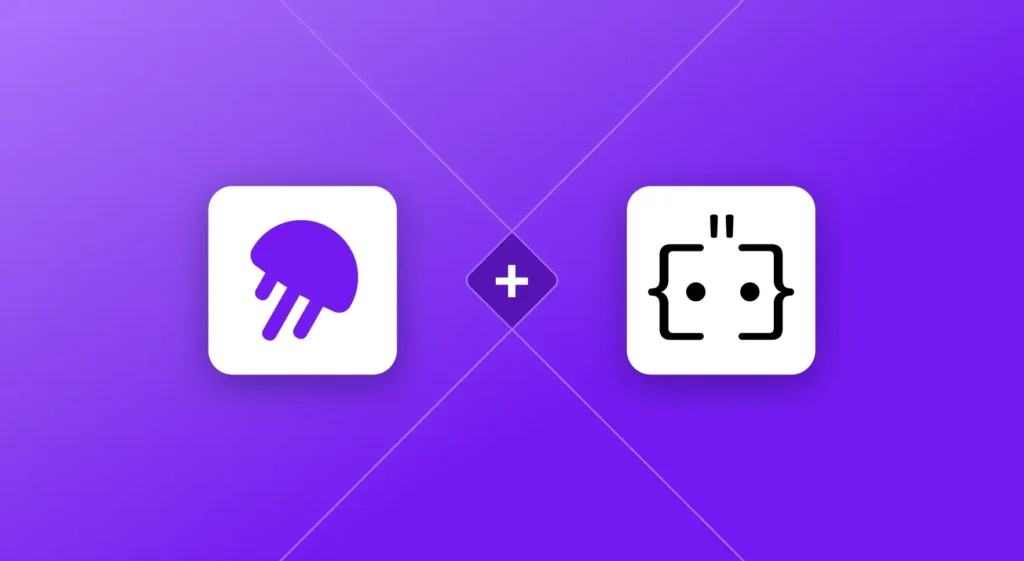In this article
AI coding copilots like GitHub Copilot and Amazon Q Developer are generating significant interest in the software development world.While CTOs and engineers may be intrigued by the potential of these tools to improve code writing and boost efficiency, a crucial question remains: can they truly deliver increased developer productivity?
Understanding the real impact of these tools is key for engineering leaders who want to make informed decisions, rather than jumping on the AI bandwagon without a second thought.
This guide cuts through the hype to examine the potential benefits of AI code generators, explores the leading options available, and provides a solution for truly measuring their effectiveness.
- Cursor AI
- Tabnine
- Amazon Q Developer (formerly CodeWhisperer)
- GitHub Copilot
- Codeium AI
- GitLab Duo
- Sourcegraph Cody
- ChatGPT-4 (OpenAI)
- Replit (with Ghostwriter)
- Gemini Code Assist
- DeepCode AI (Snyk Code)
- Claude 3.5
- OpenHands (formerly OpenDevin)
- Sourcery
- CodeRabbit
- Aider
- Microsoft IntelliCode
- Perplexity Pro
- Augment
- Devin by Cognition
Tools to Watch
- Pythagora
- Magic
- Poolside
1. Cursor AI
1. Cursor AI
Cursor is a relatively new code editor built from the ground up with AI at its core. It uses a large language model (LLM) to provide advanced code generation and editing capabilities. Cursor aims to streamline the coding process by allowing developers to generate, edit, and refactor code using natural language commands.
Key Features
-
- Code autocomplete: “Tab” is Cursor’s autocomplete feature. It suggests edits to your code across multiple lines and takes into account recent changes.
-
- Chat with natural language: Talk with an AI that knows your codebase. Request changes or ask questions using natural language instructions (e.g., “Add a function to validate user input”).
-
- AI-powered code generation: Edit or generate code from scratch by describing what you want in plain English.
-
- Code refactoring: Improve code quality by automatically restructuring and optimizing your code.
-
- Built-in debugger: Identify and fix errors within the Cursor editor.
-
- Support for multiple languages: Cursor supports a variety of programming languages, including Python, JavaScript, TypeScript, and more.
Recommended for: Developers who want a code editor that prioritizes AI-powered code generation and editing, and who are comfortable using natural language to interact with their coding tools.
What Do Developers Like about Cursor?
What Do Developers Dislike about Cursor?
Pricing
Users can save by opting for a yearly payment plan. Otherwise, monthly pricing starts at:
-
- Hobby: Free.
-
- Pro: $20 per month.
-
- Business: $40 per user, per month.
2. Tabnine
2. Tabnine
Tabnine is one of the pioneers in AI-powered code completion. It offers a lightweight and efficient solution that integrates with a wide range of IDEs and supports many programming languages. Tabnine focuses on providing private, personalized, and protected coding support.
Key Features
-
- Fast and accurate code completion: Tabnine provides code generation and suggestions automatically with natural language prompts inline or via chat.
-
- Fixes and refactoring: Use Tabnine to change code, fix a bug, add functionality, or refactor existing code. Tabnine will also explain legacy code or code in a language you’re unfamiliar with.
-
- Personalized AI: Tabnine supports over 70 programming languages, making it suitable for diverse development projects. You can create bespoke models trained on your codebase. Tabnine also provides context-aware suggestions based on your code and patterns.
-
- Privacy-focused: Tabnine offers options for local model training and enterprise deployments, giving users control over their code and data. Tabnine’s models never train on user data and code is never stored or shared without permission.
-
- IDE integration: Integrates with a wide range of popular IDEs, including VS Code, IntelliJ IDEA, and Sublime Text.
Recommended for: Developers who prioritize speed, accuracy, and privacy in their AI code completion tool, and who want a solution that supports a wide range of programming languages and IDEs.
What Do Developers Like about Tabnine?
What Do Developers Dislike about Tabnine?
Pricing
Choose from three different pricing tiers for Tabnine:
-
- Basic: Free.
-
- Dev: $9 per month.
-
- Enterprise: $39 per user, per month (requires one-year commitment).
3. Amazon Q Developer
3. Amazon Q Developer
Amazon Q Developer is an AI-powered coding companion developed by Amazon Web Services (AWS). It integrates with popular IDEs to help developers write, understand, and improve their code. Q Developer provides intelligent code recommendations, helps identify security vulnerabilities, can even generate unit tests, and offers assistance with various other coding tasks. It’s particularly well-suited for developers working within the AWS ecosystem, as it can also help with understanding AWS services and optimizing cloud resources.
Amazon Q builds upon the foundation of Amazon CodeWhisperer, incorporating its core code-focused features into a broader AI assistant. This means that many of the code generation, code suggestion, and security scanning capabilities previously associated with CodeWhisperer are now available within Amazon Q.
Key Features
-
- Real-time code suggestions: Q Developer analyzes your code and comments to provide relevant and accurate code suggestions as you type, helping you write code faster and more efficiently.
-
- Security scanning: It can automatically detect potential security vulnerabilities in your code and suggest fixes, enhancing the security of your applications.
-
- Unit test generation: Q Developer can help you generate unit tests for your code, improving code quality and reducing testing time.
-
- Integration with AWS services: Seamlessly integrates with various AWS services, making it a valuable tool for developers working on cloud-based applications. It can even assist with understanding AWS documentation and optimizing cloud costs.
-
- Support for multiple languages: It supports a range of popular programming languages including Python, Java, JavaScript, and C#.
-
- Code transformations: Q Developer can help you modernize your codebase by suggesting and implementing code upgrades and transformations.
-
- Chat with Q: You can ask Q Developer questions about your code, AWS resources, best practices, and more.
Recommended for: Developers who want an AI coding assistant with a strong focus on security and seamless integration with AWS services.
What Do Developers Like About Amazon Q?
What Do Developers Dislike about Amazon Q?
Pricing
Amazon Q offers two pricing options:
-
- Free tier: Free.
-
- Pro tier: $19 per user, per month.
4. Github Copilot
4. Github Copilot
GitHub Copilot is an AI-powered code completion tool developed by GitHub in collaboration with OpenAI. Itintegrates directly into popular code editors like VS Code and provides suggestions as you type, helping you write code faster and with fewer errors.
Key Features
-
- Real-time, context-aware suggestions: Copilot analyzes the code you’ve already written and the context of your current task to provide coding suggestions as you type.
-
- Multiple and custom suggestions: It often offers several different code options, allowing you to choose the one that best fits your needs. You can also specify custom instructions around preferred tools, organizational knowledge, and more to personalize chat responses.
-
- Whole-line and full-function completion: Enter natural language prompts and Copilot can provide entire lines of code or even generate complete functions based on your comments or function signatures.
-
- Support for popular languages: It supports a wide range of programming languages, including Python, JavaScript, TypeScript, Ruby, Go, and more.
-
- Integration with GitHub: Copilot is integrated into the GitHub ecosystem, making it easy to use for developers already familiar with the platform.
Recommended for: A wide range of developers who want an AI assistant that integrates directly into their coding workflow and provides real-time code suggestions.
What Do Developers Like about Github Copilot?
What Do Developers Dislike about Github Copilot?
Pricing
Users can choose from their pricing tiers for Github Copilot:
-
- Copilot Individual: $10 per month or $100 per year.
-
- Copilot Business: $19 per user, per month.
-
- Copilot Enterprise: $39 per user per month.
5. Codeium AI
5. Codeium AI
Codeium is a free, AI-powered code completion tool that aims to be faster and more powerful than other options. It boasts support for over 70 programming languages and integrates with a variety of IDEs.
Key Features
-
- Speedy code autocomplete: Codeium is designed to provide code suggestions quickly, minimizing any latency in your workflow.
-
- Search functionality: It allows you to search your repository using natural language questions.
-
- IDE integration and multilingual support: Codeium integrates with popular IDEs like VS Code, JetBrains IDEs, and Vim/Neovim. It also supports a wide range of programming languages.
-
- (Mostly) free to use: Codeium offers a generous free tier for individual coders, making it an accessible option for anyone looking to try out AI-powered code completion.
-
- Data security and privacy: Codeium offers opt-out for code snippet telemetry, never trains generative models on private code, provides SOC2 compliance, and does not train on non-permissively licensed code.
Recommended for: Experienced developers who prioritize speed and a wide range of language support in their AI coding assistant, and who appreciate a free and accessible tool.
What Do Developers Like about Codeium?
What Do Developers Dislike about Codeium?
Pricing
There are three pricing tiers for individuals and organizations. Individual pricing starts at $0 and bumps up to $15 or $60 per month, depending on certain credits and features. Organizations can use Codeium starting at $35 per user, per month for up to 50 users.
6. GitLab Duo
6. GitLab Duo
GitLab Duo is a suite of AI-powered tools integrated into the GitLab platform. It includes capabilities, such as AI code completion, to aid developers throughout the entire software development life cycle. It aims to enhance developer workflows within the GitLab environment by providing context-aware code suggestions, automating repetitive tasks, and facilitating communication.
Key Features
-
- AI-powered code suggestions: Duo offers code completions and suggestions in over 20 languages based on your current code and the context of your project.
-
- Issue summarization: Duo can automatically summarize lengthy issue threads, helping developers quickly understand the context and proposed solutions.
-
- Code explanations: It can provide explanations for code snippets in natural language, making it easier to understand and maintain code.
-
- Merge request reviews: Duo can assist with merge request reviews by identifying potential issues and suggesting improvements.
-
- Integration with GitLab: Seamlessly integrated into the GitLab workflow, making it convenient for developers already using the platform.
-
- Privacy-first focus: GitLab Duo doesn’t use proprietary code and data to train its AI models. It also lets you control which users, projects, and groups can use AI-powered capabilities.
Recommended for: Developers who use GitLab and want a comprehensive AI assistant that streamlines their workflow within the GitLab environment throughout the software development life cycle.
What Do Developers Like about Gitlab Duo?
What Do Developers Dislike about Gitlab Duo?
Pricing
Both of GitLab’s pricing options are billed annually. They include:
-
- Pro: $19 per user, per month.
-
- Enterprise: $39 per user, per month.
7. Sourcegraph Cody
7. Sourcegraph Cody
Sourcegraph Cody is an AI coding assistant that leverages your entire codebase and Sourcegraph’s universal code graph to provide context-aware explanations and suggestions inside your IDE. Cody goes beyond basic code completion by offering features like code generation from natural language prompts, code explanations, and automated code refactoring.
Key Features
-
- Chat-oriented programming (CHOP): AI chat powered by LLMs and deep code context, so you can write code through natural language conversation with AI.
-
- Code generation: Generate code by describing what you want in plain English or by providing examples. Cody provides real-time single and multi-line autocompletions and edits.
-
- Automated refactoring: Refactor code with natural language commands (e.g., “Rename this variable to user_name”).
-
- Context-aware search: Search your codebase and the open-source world with natural language queries.
-
- Integration with Sourcegraph: Cody is tightly integrated with the Sourcegraph code search and intelligence platform, providing comprehensive code insights.
Recommended for: Developers who want an AI coding assistant that leverages the knowledge of their entire codebase to provide advanced code intelligence and automation.
What Do Developers Like about Sourcegraph Cody?
What Do Developers Dislike about Sourcegraph Cody?
Pricing
Cody comes in three pricing tiers:
-
- Free: Free.
-
- Pro: $9 per month.
-
- Enterprise: $19 per user, per month.
8. Gemini Code Assist
8. Gemini Code Assist
Gemini Code Assist is Google’s AI-powered coding tool. It’s designed to help developers write code faster and more efficiently by providing code completions, generating code from natural language descriptions, and offering assistance with debugging and refactoring.
Key Features
-
- Code completion and generation: Gemini Code Assist provides context-aware code completions, suggesting relevant code snippets as you type. Available in popular IDEs and supports more than 20 languages.
-
- Natural language chat: Chat with Gemini Code Assist in plain English to get answers to coding questions or receive guidance on coding best practices.
-
- Code customization: Connect Gemini to your private or local codebase for more tailored, context-aware responses. You can also perform large-scale changes to your codebase.
-
- Code transformation: Automate taskssuch as identifying and fixing errors in code. Gemini can also suggest code improvements and automate refactoring tasks.
-
- Integration with Google Cloud: Gemini Code Assist is integrated with Google Cloud, making it a convenient tool for developers working within the Google Cloud ecosystem.
Recommended for: Developers who want an AI coding assistant that integrates well with Google Cloud and provides a comprehensive set of features for code completion, generation, debugging, and refactoring.
What Do Developers Like about Gemini Code Assist?
What Do Developers Dislike about Gemini Code Assist?
Pricing
Users will see a discount for signing up for annual, rather than monthly, plans:
-
- Gemini Code Assist Standard: $22.80 per user, per month.
-
- Gemini Code Assist Enterprise: $54 per user, per month (includes annual commitment).
9. ChatGPT-4 (OpenAI)
9. ChatGPT-4 (OpenAI)
While not strictly a coding copilot, ChatGPT-4 has powerful code generation capabilities. It excels at understanding natural language prompts and translating them into code snippets, functions, or even entire programs. This makes it valuable for both experienced developers seeking to automate tasks and beginners learning to code.
Key Features
-
- Natural language processing (NLP): ChatGPT excels at understanding your coding requests in plain English, allowing you to describe what you want the code to do.
-
- Code generation: It can generate code in multiple programming languages, from Python and JavaScript to C++ and Java.
-
- Code explanation: ChatGPT can explain existing code, helping you understand how it works or debug errors.
-
- Code translation: It can translate code from one programming language to another.
-
- Idea generation: Stuck on a problem? ChatGPT can help you brainstorm solutions and explore different approaches.
Recommended for: Developers who want a flexible tool for code generation, explanation, and exploration, and who prefer interacting with an AI through natural language.
What Do Developers Like About OpenAI?
What Do Developers Dislike about OpenAI?
Pricing
Pricing for ChatGPT includes several tiers depending on features and access:
-
- Free: $0/month.
-
- Plus: $20/month.
-
- Pro: $200/month.
-
- Team: Starts at $25 per user, per month.
-
- Enterprise: Inquire for pricing.
10. Replit
10. Replit
Replit is an online integrated development environment (IDE) that offers a collaborative coding experience and a built-in AI coding assistant called Ghostwriter. Ghostwriter provides code completions, generates code from natural language prompts, and helps with debugging. Replit’s focus on collaboration and ease of use makes it a great option for both individual developers and teams.
Key Features
-
- Collaborative coding: Replit allows multiple developers to work on the same code simultaneously, facilitating real-time collaboration and code reviews.
-
- Cloud-based IDE: No need for local installations; Replit provides a complete coding environment accessible from any browser.
-
- Ghostwriter AI assistance: Offers code completions, generation, and debugging assistance directly within the Replit environment.
-
- Built-in tools and packages: Replit includes a wide range of pre-installed tools and packages, simplifying development setup.
-
- Support for multiple languages: It supports a variety of popular programming languages, making it suitable for diverse projects.
Recommended for: Developers who prefer a cloud-based IDE with built-in collaboration features and an AI assistant that seamlessly integrates into the coding environment.
What Do Developers Like about Replit?
What Do Developers Dislike about Replit?
Pricing
Replit offers pricing for individuals, with team pricing options coming soon.
-
- Starter: Free.
-
- Replit Core: $15 per month, for a single user.
-
- Teams: Pricing coming soon.
-
- Enterprise: Pricing coming soon.
11. DeepCode AI (Snyk Code)
11. DeepCode AI (Snyk Code)
DeepCode, now part of Snyk Code, is an AI-driven code analysis tool that helps developers find and fix bugs, vulnerabilities, and code quality issues. It uses machine learning to analyze code and identify potential problems, going beyond traditional static analysis tools.
Key Features
-
- Bug detection: DeepCode can identify a wide range of bugs, including common errors like null pointer exceptions, resource leaks, and security vulnerabilities.
-
- Code quality analysis: It analyzes code for style issues, code smells, and potential performance bottlenecks.
-
- Security vulnerability detection: DeepCode can identify security vulnerabilities like SQL injection, cross-site scripting (XSS), and insecure deserialization.
-
- Integration with IDEs and CI/CD pipelines: DeepCode integrates with popular IDEs and CI/CD pipelines, allowing developers to catch issues early in the development process.
-
- Support for multiple languages: It supports several programming languages, including Java, JavaScript, Python, and C++.
Recommended for: Developers and teams who prioritize code quality and security, and who want an AI-driven tool to help them find and fix issues early in the development process.
What Do Developers Like About DeepCode?
What Do Developers Dislike about DeepCode?
Pricing
DeepCode is included with the larger Snyk platform.
12. Claude 3.5
12. Claude 3.5
Claude 3.5 is a large language model from Anthropic, designed with a focus on helpfulness, harmlessness, and honesty. While not exclusively a coding tool, Claude 3.5 has demonstrated strong capabilities in code generation, understanding, and debugging. Its strengths lie in its ability to follow complex instructions and engage in nuanced conversations about code.
Key Features
-
- Natural language understanding: Claude 3.5 excels at understanding complex natural language prompts related to code.
-
- Code generation and explanation: It can generate code in various programming languages and provide clear explanations of existing code.
-
- Debugging assistance: Claude 3.5 can help developers identify and understand errors in their code.
-
- Code refactoring: It can suggest code improvements and refactor code based on natural language instructions.
-
- Contextual awareness: Claude 3.5 maintains a large context window, allowing it to understand and respond to complex coding scenarios.
Recommended for: Developers who value an AI assistant that can engage in detailed conversations about code, provide insightful explanations, and assist with debugging and refactoring.
What Do Developers Like about Claude 3.5?
What Do Developers Dislike about Claude 3.5?
- You may have to work on your project in smaller pieces.
- Some developers complain about Claude’s usage limits.
- For experienced developers, some explanations may be too detailed.
Pricing
Users can access Claude across several pricing tiers. Annual subscriptions paid upfront see a discount.
- Free: Free.
- Pro: $20 per month.
- Team: $30 per user, per month. Five members minimum.
- Enterprise: Inquire for pricing.
13. OpenHands (formerly OpenDevin)
13. OpenHands (formerly OpenDevin)
OpenHands is an open-source project that aims to create an autonomous AI software engineer. It’s designed to be capable of executing complex engineering tasks and collaborating with users on software development projects. Think of it as an AI agent that can understand and respond to natural language instructions to modify code, run commands, browse the web, and even call APIs.
Key Features
- Autonomous code generation: OpenHands can generate code from natural language descriptions and user interactions.
- Task execution: It can execute complex development tasks, such as modifying code, running tests, and deploying applications.
- Collaboration: OpenHands is designed to collaborate with users on software development projects, responding to feedback and refining its actions.
- Extensibility: The platform is designed to be extensible, allowing developers to add new capabilities and customize its behavior.
- Open-source: OpenHands is an open-source project on GitHub, encouraging community contributions and fostering transparency.
Recommended for: Developers and researchers interested in exploring the capabilities of autonomous AI agents for software development, and who are willing to contribute to an open-source project.
What Do Developers Like About OpenHands?
- Developers like that it’s open source.
- Some developers can build simple apps in minutes.
- Developers like the zero-setup approach.
What Do Developers Dislike about OpenHands?
- Some feel it still has room to grow and improve.
- You only get one free workspace.
- It still requires user knowledge and intervention.
Pricing
OpenHands is available for free on GitHub.
14. Sourcery
14. Sourcery
Sourcery is an AI-powered code reviewer that helps developers find bugs, improve code quality, and share knowledge. It continuously analyzes code and suggests improvements, automatically refactoring code to enhance readability, maintainability, and performance.
Key Features
- Automated code refactoring: Sourcery automatically identifies and applies code refactorings to improve code quality.
- Continuous analysis: It continuously analyzes code as developers write it, providing real-time feedback and suggestions.
- Personalized recommendations: Sourcery learns from your coding style and preferences to provide personalized refactoring recommendations.
- Support for multiple languages: It supports popular programming languages like Python, JavaScript, and TypeScript.
- Integration with IDEs: Sourcery integrates with popular IDEs like VS Code and PyCharm to provide a seamless refactoring experience.
Recommended for: Developers who want to improve their code quality and write cleaner, more maintainable code with the help of an AI-powered refactoring tool.
What Do Developers Like about Sourcery?
What Do Developers Dislike about Sourcery?
Pricing
Choose from three pricing tiers with Sourcery:
-
-
- Open Source: Free.
- Pro: $10 per user, per month.
- Enterprise: Inquire for pricing.
-
15. CodeRabbit
15. CodeRabbit
CodeRabbit is an AI-powered code review tool that helps developers improve code quality and reduce the time spent on manual code reviews. It analyzes code, identifies potential issues, and provides actionable suggestions for improvement. CodeRabbit integrates with popular code repositories and CI/CD pipelines to automate code review workflows.
Key Features
-
-
- Automated code analysis: CodeRabbit analyzes code for potential bugs, vulnerabilities, code smells, and style issues.
- Actionable suggestions: It provides clear and concise suggestions for improving code quality, along with code examples and explanations.
- Code style enforcement: CodeRabbit helps enforce consistent code style across projects, ensuring readability and maintainability.
- Integration with code repositories: It integrates with popular code repositories like GitHub, GitLab, and Bitbucket.
- CI/CD integration: CodeRabbit can be integrated into CI/CD pipelines to automate code analysis and review processes.
-
Recommended for: Teams that want to automate code reviews, improve code quality, and reduce the time spent on manual code analysis.
What Do Developers Like about CodeRabbit?
What Do Developers Dislike about CodeRabbit?
Pricing
All of CodeRabbit’s plans include a 14-day free trial:
-
-
- Free: Free.
- Lite: $12 per month.
- Pro: $24 per month.
- Enterprise: Inquire for pricing.
-
16. Aider
16. Aider
Aider is an AI coding assistant that focuses on helping developers automate repetitive tasks and generate code quickly. It integrates with popular IDEs and provides features like code completion, code generation from natural language descriptions, and automated code refactoring.
Key Features
- Code completion: Aider provides context-aware code completions, suggesting relevant code snippets as you type.
- Code generation: It can generate code from natural language descriptions, allowing developers to express their intent in plain English.
- Automated refactoring: Aider can automatically refactor code to improve readability, maintainability, and performance.
- IDE integration: It integrates with popular IDEs like VS Code and IntelliJ IDEA.
- Support for multiple languages: Aider supports a variety of programming languages, including Python, Java, and JavaScript.
Recommended for: Developers who want to automate repetitive coding tasks, generate code
What Do Developers Like About Aider?
What Do Developers Dislike about Aider?
Pricing
Aider is a free, open-source tool.
17. Microsoft IntelliCode
17. Microsoft IntelliCode
Microsoft IntelliCode is an AI-assisted development tool integrated into Visual Studio and Visual Studio Code. It uses machine learning to provide intelligent code completions, suggest relevant code actions, and guide developers towards best practices. IntelliCode aims to improve developer productivity and code quality by learning from thousands of open-source projects and the developer’s own codebase.
Key Features
- Intelligent code completions: IntelliCode goes beyond basic autocompletion by providing context-aware suggestions, prioritizing the most likely and relevant API calls and code snippets based on your current code and common coding patterns.
- Whole-line completions: For supported languages like C# and Python, IntelliCode can predict and complete entire lines of code, significantly speeding up the coding process.
- Quick actions: IntelliCode can recognize common coding tasks and recommend the appropriate quick actions, such as generating constructors or adding parameters.
- Team completions (preview): This feature allows IntelliCode to learn from your team’s codebase and provide personalized code completions tailored to your team’s specific patterns and practices.
- Integration with Visual Studio and VS Code: IntelliCode is seamlessly integrated into Microsoft’s popular IDEs, making it readily available for programmers using these tools.
Recommended for: Developers using Visual Studio or Visual Studio Code who want to enhance their coding efficiency and code quality with AI-powered assistance, particularly for C# and Python development.
What Do Developers Like About Microsoft IntelliCode?
- Some developers say it helps them code faster.
- IntelliCode helps with productivity.
- Developers like that it provides a whole line of code at a time.
What Do Developers Dislike about Microsoft IntelliCode?
- Perhaps not as well suited for Java.
- Some users have issues with Visual Studio freezing or crashing.
- Visual Studio can be “heavy,” impacting performance.
Pricing
IntelliCode is included in Visual Studio and VS Code subscriptions.
18. Perplexity Pro
18. Perplexity Pro
Perplexity Pro is an AI-powered chatbot that goes beyond traditional search by providing concise answers and summaries to complex questions, along with citations and sources. While not exclusively a coding tool, Perplexity Pro has powerful features that can assist developers in their work, such as code interpretation, debugging assistance, and access to advanced AI models for code generation.
Key Features:
- AI-powered search: Perplexity Pro uses advanced artificial intelligence models to understand complex questions and provide accurate and relevant answers.
- Code interpretation: It can interpret code snippets, explain their functionality, and provide insights into potential issues.
- Debugging assistance: Perplexity Pro can help developers debug code by identifying errors and suggesting solutions.
- Access to advanced AI models: Pro users get access to more powerful AI models, including GPT-4 and Claude, which can be used for writing code or code completion.
- Citations and sources: Perplexity Pro provides citations and sources for its answers, making it a reliable tool for research and learning.
Recommended for: Developers who want an AI-powered search engine that can help them understand code, debug errors, and access advanced AI models for code generation and other coding tasks. It’s also useful for research and staying up-to-date on the latest information in the field.
What Do Developers Like about Perplexity Pro?
- Helps with coding and text generation.
- It can provide decent DevOps tech support.
- It can search the internet and cite sources.
What Do Developers Dislike about Perplexity Pro?
- Response time can be slow occasionally.
- It can lose context from message to message.
- Some find general AI chat tools less effective than coding-specific tools.
Pricing
Perplexity includes individual and team options:
- Standard: Free.
- Professional: $20 monthly.
- Enterprise: $40 per user, per month (up to 250 employees).
19. Augment Code
19. Augment Code
Augment Code is an AI-powered coding tool that aims to augment, not replace, developer work. Augment’s developer AI makes suggestions based on your company’s codebase, documentation, and more so developers can work smarter and faster.
Key Features
- Code completions: Provides personalized in-line completions that understand the context of your codebase, dependencies, and external APIs.
- Suggested edits: Augment provides codebase-wide suggestions based on your latest edits.
- Chat: AI-powered chat provides users with instant answers so they don’t have to search documentation or ask a teammate.
- Privacy and security: Augment emphasizes security and gives users control over personal data. Its Proof-of-Possession API ensures code completions operate only on locally possessed code to simplify authorization management while maintaining security.
Recommended for: Developers who want an AI-powered coding tool that provides personalized recommendations so they can work faster at scale.
What Do Developers Like and Dislike about Augment?
It’s too soon to tell!
Pricing & Availability
Augment is now available for free trials in the U.S. and Canada. Its website claims the platform follows a usage-based plan, where you only pay for what you use, with pricing starting at $60 per user per month.
20. Devin by Cognition
20. Devin by Cognition
Devin is an AI-powered, fully autonomous junior software engineer. This AI teammate is designed to help teams with tasks such as fixing frontend bugs, creating first-draft PRs for backlog tasks, making refactors, and more.
Key Features
- Collaborate in natural language: Users can tag Devin in Slack with a natural language request, and Devin will respond in real-time with its plans and next steps.
- Autonomous task completion: Devin can work independently across several use cases, including code migration and refactors, data engineering and analysis, bugs and backlog work, application development, and more.
- Enterprise features: Devin’s enterprise tier includes additional features, such as enterprise-grade security and privacy, access to teams of Devins (MultiDevin), event-driven automation, and more.
Recommended for: Enterprise developer teams willing to experiment with an AI teammate so they can focus on more strategic work.
What Do Developers Like and Dislike about Devin?
Devin became generally available in December 2024. Reviews are still rolling in!
Pricing & Availability
Devin is designed for team, rather than individual, use. Pricing starts at the following:
Enterprise: Inquire for pricing.
AI Coding Tools to Watch
AI Coding Tools to Watch
The AI coding tools space is just starting to heat up. Here are several companies with tools on the horizon but not yet available for public use:
- Pythagora (formerly GPT Pilot): Pythagora aims to be a comprehensive AI developer that builds apps through natural language interaction. The company is building the AI tool on the open-source GPT Pilot. In May 2024, Pythagora announced the closure of a $4 million seed funding round. Pythagora is not yet available to the public, but developers can sign up for early V1 access.
- Magic: Magic is a genAI coding startup whose tools will help developers write, review, debug, and plan code changes. While not yet available to the public, Magic recently announced a partnership with Google Cloud to develop two supercomputers.
- Poolside: Poolside is an AI coding assistant startup founded by Jason Warner, formerly of GitHub, Canonical, and Heroku, and Eiso Kant, formerly of Athenian. While Poolside is not yet available to the general public, the company has been busy raising funding. Its valuation currently sits at about $3 billion.
Measuring the Impact of AI Coding Copilots with Jellyfish
Measuring the Impact of AI Coding Copilots with Jellyfish
AI coding copilots have the potential to significantly improve developer productivity. However, it’s essential to measure their actual impact on your engineering team. Are these tools truly enhancing efficiency and code quality? Or are efficiency gains minimal?
Jellyfish is an engineering management platform that provides the data-driven insights you need to understand the true ROI of your AI coding investments. By combining data from GitHub and other development tools, Jellyfish provides a clear picture of how your team is performing.
Here’s how Jellyfish can help you measure the impact of AI coding copilots:
- Track key metrics: Jellyfish tracks important engineering metrics like cycle time, code churn, and pull request resolution time. By monitoring these metrics before and after adopting AI coding copilots, you can gain a quantitative understanding of their impact on your team’s efficiency.
- Identify trends and patterns: Jellyfish helps you identify trends and patterns in your engineering data, allowing you to see how AI coding copilots are influencing your team’s workflow and code quality.
- Gain insights into individual and team performance: Dive into individual developer performance and team dynamics to understand how AI tools are affecting different team members.
- Make data-driven decisions: With Jellyfish’s data and analytics, you can make informed decisions about which AI coding copilots to adopt, how to best integrate them into your workflow, and how to optimize their use for maximum impact.
Jellyfish gives you the data you need to make informed decisions about your AI coding investments. Request a demo to learn more.
AI Developer Tools FAQ
AI Developer Tools FAQ
How Does Generative AI Benefit Software Developers?
Generative AI offers numerous benefits to software developers, including:
- Increased productivity: AI coding tools can automate repetitive tasks, generate code from natural language descriptions, and provide intelligent code completions, allowing developers to write code faster and with fewer errors.
- Improved code quality: AI can analyze code for potential bugs, vulnerabilities, and style issues, helping programmers write cleaner, more maintainable code.
- Reduced cognitive load: By automating tasks and providing intelligent assistance, AI coding tools can free up developers’ mental capacity to focus on higher-level tasks and problem-solving.
- Enhanced learning and upskilling: AI tools can help developers learn new languages and technologies faster by providing explanations, examples, and personalized guidance.
- Accelerated innovation: Generative AI can help developers explore new ideas and solutions, enabling faster experimentation and innovation in software development.
How Are AI Models Used in Coding Tools?
AI models, particularly large language models (LLMs), are the core technology behind AI coding tools. These models are trained on massive datasets of code and text, enabling them to:
- Understand code: AI models can analyze code, identify patterns, and understand the relationships between different code elements.
- Generate code: Based on their understanding of code and natural language, AI models can generate code snippets, functions, and even entire programs.
- Provide code completions: AI models can predict the next tokens in a code sequence, providing intelligent code completions as developers type.
- Analyze code quality: AI models can identify potential bugs, vulnerabilities, and code style issues, helping developers improve their code.
- Translate code: AI models can translate code between different programming languages.
What Are Common Use Cases for AI Developer Tools?
How you use AI developer tools will depend on your team’s specific needs and concerns. However, AI developer tools can be used for a wide range of tasks, including:
- Code generation: Generating code from natural language descriptions, code comments, or examples.
- Code completion: Providing intelligent code suggestions as developers type.
- Code review and analysis: Identifying potential bugs, vulnerabilities, and code style issues.
- Code refactoring: Automatically improving code structure and readability.
- Debugging: Assisting developers in finding and fixing errors in their code.
- Documentation generation: Automatically generating code documentation.
- Test creation: Generating unit tests and integration tests for code.
- Project management: Assisting with project planning, task management, and progress tracking
What Is OpenAI’s Role in Advancing AI Tools for Developers?
OpenAI has played a significant role in advancing AI tools for coders by:
- Developing foundational LLMs: OpenAI has created some of the most advanced LLMs, such as GPT-3 and Codex, which power many AI coding tools.
- Collaborating with industry partners: OpenAI has partnered with companies like GitHub and Microsoft to integrate its AI models into popular developer tools.
- Conducting research and development: OpenAI continues to conduct research and development in the field of AI, pushing the boundaries of what’s possible with AI coding tools.
- Promoting open-source initiatives: OpenAI has released some of its models and tools as open-source, enabling a wider community of developers to contribute to the advancement of AI coding tools.
OpenAI’s contributions have significantly accelerated the development and adoption of AI coding tools, making them more accessible and powerful for developers worldwide. Their work on LLMs, particularly OpenAI Codex, has laid the foundation for many of the tools discussed in this guide.
About the author

Nikolas Albarran is a Product Researcher at Jellyfish.





